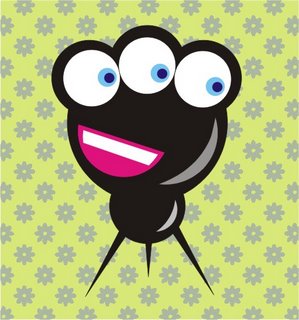¿Por qué hay gente homosexual ?
¿Por qué hay personas homosexuales? ¿Cuál es la razón biológica para esto? La teoria de la evolución indica que si alguna característica biológica (la homosexualidad es una de ellas, que no quepa duda) no es bueno para la especie, entonces dicha característica debe desaparecer. Sin embargo, este no es el caso. El siguiente extraco del artículo de doctor Lorne Warneke (http://www.times10.org/lorne_1.htm) nos ofrece una explicación coherente (y refrescante) sobre este punto:
"... In traditional Navajo culture (untarnished by Christian attitudes) there is the 'Nadle', a word meaning 'one who is transformed'. These were androgynous males of that society that is they had male and female qualities. Navajo families who had a child who behaved androgynously (have some female attributes) were considered to be very fortunate and felt that their success and fortune was assured. Most if not all of these androgynous children were homosexual. As adults, they became 'Nadle', were regarded as being sacred and holy and were given great respect. In other primitive societies, androgynous men were referred to as Berdache by early explorers. They were often regarded as shamans or sacred people. The Winktes (meaning half woman half man in the Dakota language), of an Indian tribe in South Dakota were healers, spending their time helping others, visiting and comforting the ill and the elderly. The Cheyenne berdache were regarded as noted and valued matchmakers. In Hawaii and Tahiti, androgynous males were and still are called Mahu, and in Samoa, they are called fa' afafine. In these cultures, such individuals take care of the elderly and the sick. The Nadle of the Navajo tribe were also regarded as being great with children, being very adept at parenting and nurturing. The berdache of most primitive societies often became parents through adoption of orphans, or aided other parents in the care of their children. Berdache were highly productive at both women's and men's work and became renowned at being cooks, producing handicrafts as well as having a good business or management sense. The berdache (read homosexual males) were also well known for being hard workers, productive, intelligent and sensitive. Likewise, the mythical Amazons (read female homosexuals) of Greek legend were admired for their skills in hunting and fighting as well as being leaders. Most of these societies recognized that the berdache and the Amazons (a term applied to very masculine females that were seen in these societies) were homosexual. However, this was not an issue. Sexuality was seen as a gift from the spirit world, whereas the social behaviours of the berdache were regarded as an asset. This is in sharp contrast to the Western 'civilized' world where homosexuality is condemned by the Church and by society in general! The Navajo's joy of having an androgynous child (homosexual) is in sharp contrast to the pain, anguish and rejection of most Western families when they learn that one of their offspring is homosexual!
Therefore, in being a homosexual male (as compared to a heterosexual male) means likely having many characteristics that in fact, are very positive and advantageous. It probably means having a brain that is organized in a way that allows for greater facility with words and language and overall efficiency in terms of transfer of information from one hemisphere to the other. It likely means being more intuitive, being more sensitive, and being more aware of others feelings. It likely means being less aggressive in terms of territory, less dominating, but more protective of family and kin (or significant others). It likely means being more nurturing and caring, being more adept at looking after children and being more concerned about the sick, weak and elderly. All of these traits or characteristics, of course, are strengths. It means that homosexual males may have the best of both worlds with well defined visuospatial abilities characteristic of most heterosexual males, but also have well defined verbal/language skills, intuition, sensitivity, creativity and nurturing abilities! This is probably also true for homosexual females who have the attributes of most heterosexual females, but also have better defined visuospatial abilities."



No hay comentarios.:
Publicar un comentario